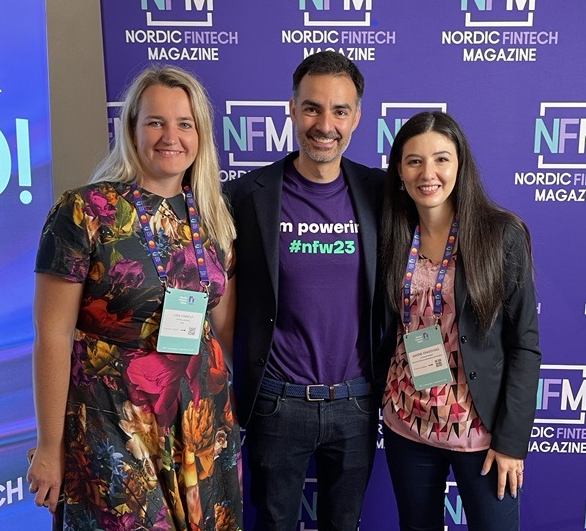The conference was a platform for discussing a multitude of topics, and it served as a stage for showcasing the innovations emanating from Nordic countries. Notably, it also welcomed a significant contingent from the Baltic fintech ecosystem.
One of the central themes of the conference was the evolution of open banking into the upcoming regulation of open finance. The discussions around this topic delved deep into how open finance could benefit various stakeholders in the financial market. One noticeable trend is the growing collaboration between traditional banks and payment service providers, underpinned by open banking principles across Europe. API technologies, a cornerstone of open banking, were prominently featured. In Latvia APIs are becoming integral in the financial sector. However, these discussions also raised pertinent questions about data quality and data protection within the financial sector, especially in the context of new regulations in open finance.
The role of regulation in supercharging the fintech ecosystem emerged as another pivotal discussion point. The support of governmental institutions, supervisory authorities, and central banks is instrumental in fostering innovation. National fintech strategies, such as the one adopted in Latvia, outline the direction for a healthy fintech ecosystem. These strategies prioritize the development of regulations that facilitate sustainable growth and align with innovation trends. Initiatives like innovation hubs and regulatory sandboxes, which provide high-quality advisory services and a conducive environment for financial sector growth, are highly appreciated by market participants. Effective dialogue between industry players and regulatory bodies is crucial for both industry growth and risk management.
Cutting-edge technologies like Artificial Intelligence (AI) were also in the spotlight. AI-driven automation systems have the potential to revolutionize workforce dynamics and elevate financial services to new heights. While AI brings forth a plethora of opportunities, it also presents new risks. Fintech companies, especially those in the Nordic and Baltic regions, find themselves at the forefront of developing innovative solutions in this realm. These innovative processes and technologies are shaping new business models that enhance the quality of financial services. Topics like the future of payments, digital identity, Central Bank Digital Currencies, and Anti-Money Laundering compliance tools were prevalent throughout the forum, showcasing the depth and breadth of discussions.


